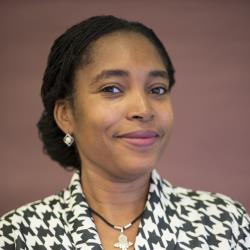WSIS Action Line C7: E-Agriculture
FAO
Session 393
Advancing Human-Centered, Inclusive, Development-Oriented, and Sustainable Digital Solutions for Transforming Agrifood Systems
Organized under WSIS Action Line C7 on E-Agriculture, this session reflects the Food and Agriculture Organization’s (FAO) longstanding leadership in facilitating WSIS Action Line C7 on E-Agriculture, demonstrating a strong commitment to leveraging digital innovation for sustainable agrifood systems. Through a human-centered and inclusive approach, FAO has worked to ensure that digital tools and services reach even the most remote and underserved farming communities, helping to bridge the digital divide and empower smallholder farmers.
Under FAO’s leadership, Action Line C7 has become a key driver of digital transformation in agriculture, fostering innovative ecosystems, knowledge sharing, and equitable access to ICTs. Initiatives such as the E-Agriculture Community of Practice, the 1,000 Digital Villages Initiative, the Global Network of Digital Agriculture Hubs, and support for the national digital agriculture strategies development have contributed to the agricultural transformation, climate-smart agriculture, and rural resilience.
In addition to this, over the past two decades, E-agriculture has evolved from basic ICT applications to sophisticated and advanced digital systems involving AI, drones, geospatial technologies, precision agriculture, and autonomous agriculture with robotics. There is an increasing momentum to use digital public goods in combination with commercial digital goods. Despite progress, challenges such as the digital divide, limited infrastructure, connectivity, and capacity gaps persist, especially in rural and underserved communities.
This side event will offer an opportunity to reflect on key achievements so far and shape a bold, ambitious, inclusive vision for the future of digital agriculture, more specifically advancing a forward-looking agenda aligned with the WSIS+20 and the 2030 Sustainable Development Goals (SDGs).







-
 C7. ICT applications: benefits in all aspects of life — E-agriculture
C7. ICT applications: benefits in all aspects of life — E-agriculture
The session aligns with WSIS Action Line C7 on E-Agriculture by promoting inclusive, human-centered digital solutions that empower smallholder farmers and rural communities. It highlights successful initiatives like the 1,000 Digital Villages and Digital Agriculture Hubs while advancing a forward-looking vision that integrates AI, open-source platforms, and digital public goods to support climate-smart, resilient agrifood systems, all in line with the WSIS+20 and 2030 SDG agenda.
-
 Goal 1: End poverty in all its forms everywhere
Goal 1: End poverty in all its forms everywhere
-
 Goal 2: End hunger, achieve food security and improved nutrition and promote sustainable agriculture
Goal 2: End hunger, achieve food security and improved nutrition and promote sustainable agriculture
-
 Goal 13: Take urgent action to combat climate change and its impacts
Goal 13: Take urgent action to combat climate change and its impacts
The session directly supports the Sustainable Development Process by advancing digital agriculture solutions that contribute to SDG 1 (No Poverty), SDG 2 (Zero Hunger), and SDG 13 (Climate Action). By promoting inclusive, human-centered technologies and fostering multi-stakeholder collaboration, it aligns with the 2030 Agenda’s call for innovation, equity, and resilience in agrifood systems transformation.
- Objective 1: Close all digital divides and accelerate progress across the Sustainable Development Goals
- Objective 2: Expand inclusion in and benefits from the digital economy for all
- Objective 3: Foster an inclusive, open, safe and secure digital space that respects, protects and promotes human rights
- Objective 4: Advance responsible, equitable and interoperable data governance approaches
- Objective 5: Enhance international governance of artificial intelligence for the benefit of humanity
- https://www.fao.org/e-agriculture
- Home | FAO Digital Services Portfolio | Food and Agriculture Organization of the United Nations
- e-Agriculture Community of Practice | Groups | LinkedIn
- FAO e-Agriculture (@FAOeagriculture) / X
- https://www.youtube.com/user/FAOoftheUN